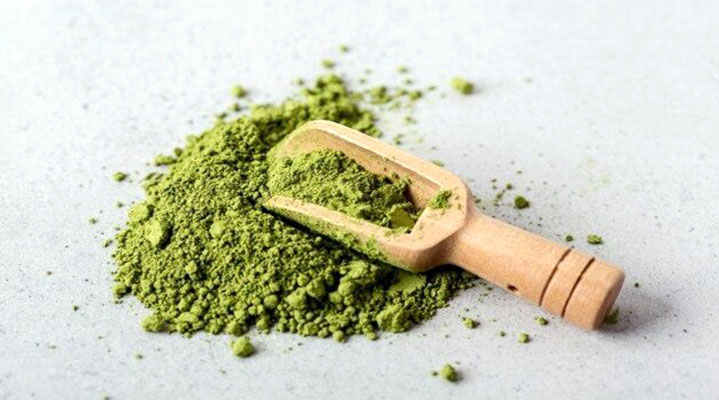Kratom is a plant that has created controversies worldwide. Some perceive it as good for energy and pain relief, but others worry about safety and legality. In Canada, Kratom’s legality is not clearly defined, and many people do not know whether they can sell, buy, or use it.
In addition, more than 15 million people worldwide use kratom for various purposes. Health Canada has not, however, licensed it for therapeutic or medicinal use, and its safety is in doubt. Confusion is added to the fact that enforcement regulations differ from province to province.
So, is Kratom legal in Canada or in legal limbo? Familiarity with federal and provincial legislation will keep you informed and in good standing with the law.
This article explores the current regulations, the stance of Health Canada, and what the future might hold for kratom in Canada.
1. Federal Regulations Governing Kratom in Canada
Is Kratom legal in Canada? That is a question that is asked by many. Kratom is not a federally prohibited drug, but it is not approved for human consumption. That is to say that you can possess Kratom, but it is against the law to sell it for human use.
Health Canada regulates substances based on safety and medical data, and Kratom is not a regulated health product. Therefore, it is not likely to be sold for human consumption. Thus, it would be illegal for a company to sell Kratom with claims related to health.
Moreover, border security is also a consideration when dealing with kratom laws, as the authorities can seize Kratom imported from overseas. Customs agents have strict rules regarding unapproved substances. Therefore, always check legal requirements before importing Kratom, as penalties vary.
2. Health Canada’s Stance on Kratom
Health Canada has labeled Kratom as a potentially health-risk product. The agency warns that Kratom contains ingredients that affect the brain, just like opioids. As a result, addiction, side effects, and long-term health effects are of concern.
Additionally, Health Canada has not approved Kratom as a medicine or for therapeutic use. Thus, physicians cannot prescribe Kratom, and it cannot be distributed as medicine by pharmacists. Health claims about Kratom on kratom products are illegal under federal law. Therefore, if Kratom is being marketed as a supplement, then the seller may be selling it illegally. Moreover, adverse reaction reports such as nausea, vomiting, and dizziness have been reported, causing Health Canada to issue warnings. Kratom has even been reported to be addictive with repeated use in some reports. Thus, such problems have influenced the regulation of Kratom in Canada.

3. Provincial And Territorial Variations In Kratom Regulation
While national legislation gives general guidance, provinces and territories may add additional restrictions. That is, kratom availability and kratom regulation may vary depending on where you are.
The authorities are strict in certain provinces, as Kratom goods may be seized, and the vendors can be warned. Vendors of Kratom for human consumption may be penalized with a fine, or their operation can be prohibited. Some local health departments have even issued public notices about Kratom’s impact.
In other provinces, Kratom is in legal limbo. Some vendors are marketing Kratom as an incense, research item, or botanical sample. Since they are not selling it for human consumption, they may be able to get around the law. However, just because Kratom is available for sale in a province does not necessarily mean that it is legal. Therefore, you should always check with local laws before purchasing or consuming Kratom.

4. Legal Implications For Vendors And Consumers
If you’re marketing Kratom in Canada, you must be aware of stringent regulations. Vendors are not allowed to sell Kratom for human consumption, and health claims may result in prosecution. Thus, Health Canada actively tracks vendors selling illegal products, and the culprits may be warned, or the business may be shut down.
Moreover, consumers are also at risk. It is not illegal to have Kratom, but buying it from an unauthorized source can be problematic. When a product is contaminated or mislabeled can be dangerous for your health. Thus, you should always be mindful of where you purchase Kratom and how it is labeled.
5. Future Outlook: Potential Changes In Kratom Legislation
Kratom legislation may change in the future. Health Canada continues to research Kratom and its effects, and breakthroughs can invoke policy reform. If research has found safety issues, Kratom can be added as a regulated substance. On the other hand, in case medicinal value is found, Kratom may be added as a prescription.
Public opinion and pressure are also in play. While there are calls for more restrictive measures to halt abuse, there are also arguments that Kratom must be legal for personal consumption. Government authorities may consider such perspectives when determining policy.
Therefore, staying current with potential legal developments is a good idea. Paying attention to Health Canada’s news releases and provincial news will inform you of what is legal and what is not.

Conclusion
The legality of Kratom in Canada is complex. It is not illegal, but it is illegal to sell it for human consumption. Federally, there are regulations on how Kratom can be sold, and the provinces can have additional prohibitions. Health Canada has safety issues with Kratom, and this affects how it is regulated.
Moreover, you should understand the legal implications when selling or buying Kratom. The sellers cannot make health claims, and the buyers should be careful when purchasing poorly labeled products. Ultimately, information on Kratom’s legality enables you to make educated choices.








